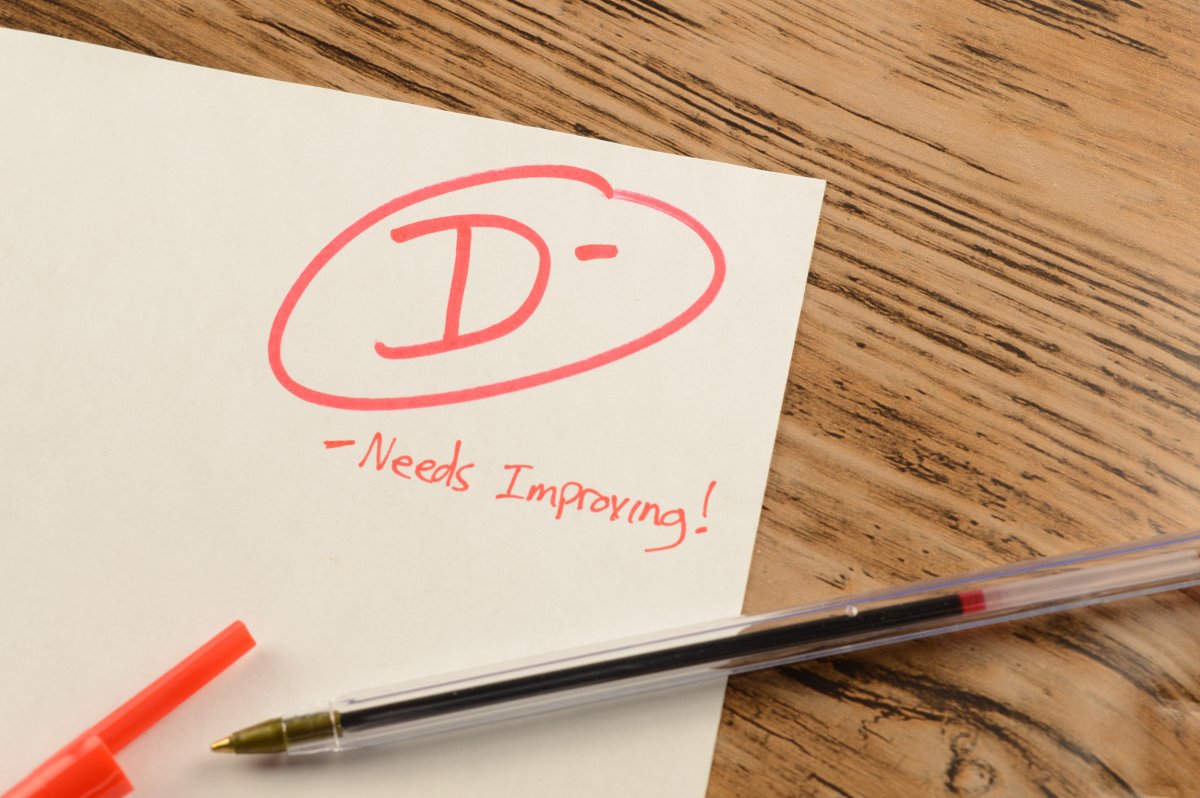Having the last name Atkins rather than Williams might mean you get better grades, according to new research.
Students with surnames that start with letters earlier in the alphabet tend to get better grades at school than those with surnames that appear later, claims a new study due to be published in the online journal Management Science.
This isn't due to the students themselves, however, as the researchers say it is the fault of the default ordering of student submissions in alphabetic order.

The researchers—from the University of Michigan—analyzed more than 30 million grading records from students at the university between the fall 2014 semester and the summer 2022 semester, and found that those with names later in the alphabet got lower grades.
After enhancing this data with additional records on students' backgrounds, demographics, and academic progress at the university, they concluded that this pattern was due to grading biases relating to the order of student submissions on a management system named Canvas, which ranks the students in alphabetical order.
"We spend a lot of time thinking about how to make the grading fair and accurate, but even for me it was really surprising," study author Jun Li, an associate professor of technology and operations at the university's Ross School of Business, said in a statement.
"It didn't occur to us until we looked at the data and realized that sequence makes a difference."
The paper describes how students whose surnames start with A, B, C, D or E got an average of 0.3 points higher out of 100 possible points compared to random grading, while those later in the alphabet received 0.3 points lower than random grading.
For graders who ranked students Z-A instead, the same pattern was seen, but in reverse, with lower-alphabet students doing better than early-alphabet students.
"Our conclusion is this may be something that happened unconsciously by the graders that's actually creating a real social impact," study author Helen (Zhihan) Wang, a researcher at the Stephen M. Ross School of Business, said in the statement.
The researchers also found that lower-alphabet students receive feedback that is significantly more negative and less courteous, and the quality of their grading is lower, as indicated by the number of complaints from students after receiving their grades.
"We kind of suspect that fatigue is one of the major factors that is driving this effect, because when you're working on something for a long period of time, you get tired and then you start to lose your attention and your cognitive abilities are dropping," study author Jiaxin Pei, a researcher from Michigan's School of Information, said in the statement.
The researchers suggest that one solution would be to rank students randomly, but the default mode on Canvas and other learning management software is alphabetical, so many might not think to change it.
They also suggest that graders could be trained to avoid such biases, or more graders could be hired for larger classes to avoid people getting tired towards the end of the list.

Many students who have seen the presentation of this research at conferences have felt vindicated by the findings.
"A college student emailed us afterward asking us to share the paper with him," Li said. "He mentioned that his last name started with W. He's going to tell his parents it's not because of him—it's because of his last name."
Do you have a tip on a science story that Newsweek should be covering? Do you have a question about grades? Let us know via science@newsweek.com.
Uncommon Knowledge
Newsweek is committed to challenging conventional wisdom and finding connections in the search for common ground.
Newsweek is committed to challenging conventional wisdom and finding connections in the search for common ground.
About the writer
Jess Thomson is a Newsweek Science Reporter based in London UK. Her focus is reporting on science, technology and healthcare. ... Read more
To read how Newsweek uses AI as a newsroom tool, Click here.








